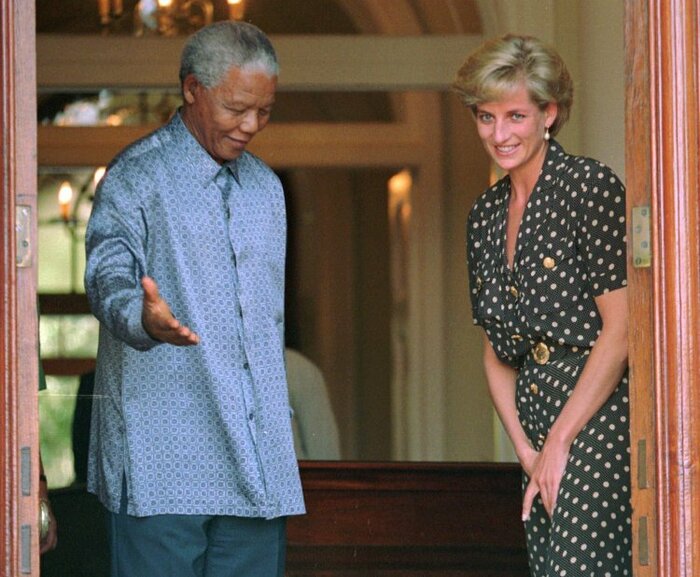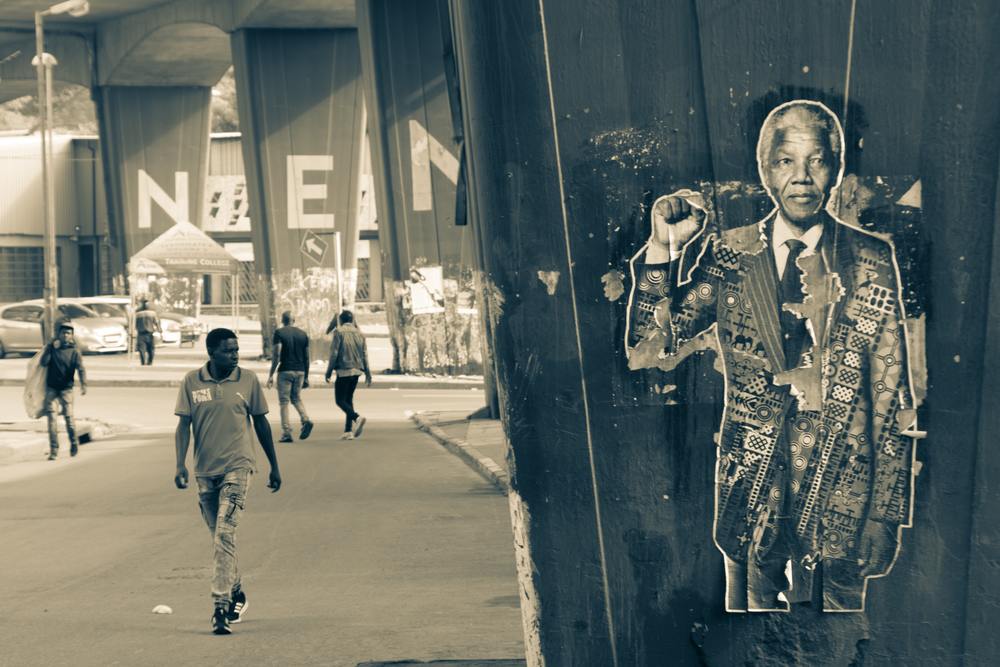Wherever you are in the world, there’s a good chance that you’re under some kind of state-mandated lockdown. Doesn’t that give you a sense of international unity?
Perhaps not. After all, with the lockdown comes a host of negative consequences. Many can’t work. We can’t (physically) socialise, or visit family. There’s the fear of the virus; fear of uncertainty. Most evidently, there’s an expanse of time spreading out ahead of us, stuck for the most part indoors.
It’s fair to say that most are trying to make the best of it, to survive in any way they can. There’s no right way to endure the isolation, no matter how many sourdough loaves and home workouts your peers are smugly churning out. Some of us simply aren’t geared to pivot our lifestyle so drastically while staying productive. However, it might be helpful to look to history for inspiration in your strategy for dealing with isolation.
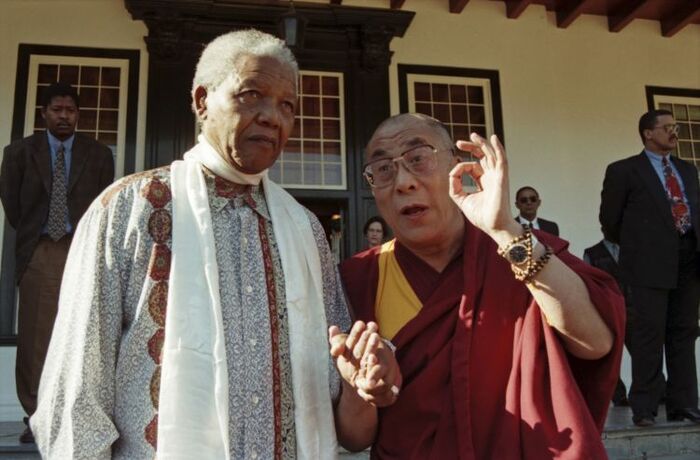
All is not lost
Whether your career is continuing apace indoors or has been put on hold, now is a great time to work on securing it. Career adaptability will be the defining criteria for those that march into the post-pandemic era with confidence and resilience to not just withstand the aftershock of Covid-19 but also digital disruption and the workplace of the future.
At Saffron, we’ve focused on how transferable skills can be recognised so that career adaptability has a framework to which individuals and organisations can build learning paths.
In this article, we’ll be evaluating the example set by one of history’s most famous survivors of isolation – Nelson Mandela. A political prisoner, Mandela was jailed for 27 years for his activism against apartheid in South Africa. He went on to become the first black Prime Minister of South Africa and has become a symbol of strength and defiance. We’ll look at some of the ways he bore his repression, and how they might translate into ways we can protect ourselves.
It’s important to consider the importance of his legacy and the relative hardship he went through. There’s no intention of demeaning his struggle by inviting comparison to our circumstances. While it is largely inappropriate to liken the relatively privileged experience of social isolation with a gruelling prison sentence, it feels right to learn from Mandela and draw inspiration from his example.
Not the best learner
Aside from being an activist, statesman, and sometimes boxer, Nelson Mandela worked as a lawyer. He established South Africa’s first black-operated law practise in 1952. But did you know that he only gained his law degree 37 years later? By his own admission, he was a poor student, failing maybe half of all exams that he took.
While in prison he took the opportunity to study his craft, eventually gaining the qualification through a distance learning course from the University of London. As well as this achievement, he took pains encouraging his fellow prisoners to study. He led efforts to learn languages and lectured his peers, in what was called ‘university behind bars’. This was alongside the toiling they had to undergo in the daytime as part of their prison labour.
What can we learn from this? Well, first that it’s never too late to learn and that lifelong learning is a characteristic of great men and women. Mandela was passionate about the law and found success but was never complacent. Even when it could have been the furthest thing from his mind, he worked to sharpen his mind and hone his craft. More than that, he was clearly undeterred by his early struggles academically. And finally, it’s important that we learn from his desire to share learning. When we teach others and let others teach us what they know, knowledge is shared. Mandela was keenly aware of this. Perhaps when you’re using time in isolation to strengthen your knowledge, create an exchange of learning with your colleagues, family and friends.
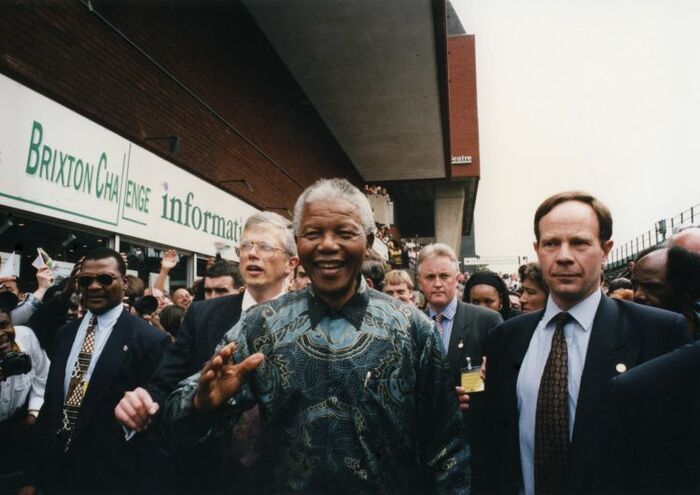
Fail to plan or plan to fail
Mandela was held not just in captivity, but in secrecy. During his time on the notorious Robben Prison Island and other institutions, Mandela was separated from the growing media attention focused on his case. On his release, nobody even knew what he looked like as it had been over 20 years since he’d been sighted by the public. No pictures had been allowed.
But despite this extra layer of isolation, Mandela continued his political activities in secret. He wrote letters and smuggled out messages, working with his compatriots inside and outside the prison to further the struggle against apartheid. This meant that on release he was ready to swing into action and re-join the political sphere. Shortly afterwards, he was the leader of the nation!
What can we take from this? It’s important to draw a line between our actions now, and opportunities outside of isolation. This doesn’t mean that you should feel oppressed but instead be empowered by how you can set yourself up for success down the line. This can be in larger or smaller ways. Start a project now, visualise your goal and take this time to plan the steps towards it. Whatever can be achieved now, get started. This will give you much-needed momentum down the line.
Endurance
Despite the cruelty of his punishment, Mandela remained gracious and pragmatic. He noted that it was essential to his mental wellbeing that he did not treat his jailors with animosity. Instead, he viewed his stay as a necessary stage in the journey to equality for black people in South Africa.
He worked to slowly improve conditions within the prison, eventually achieving a safer and more comfortable situation for all. Exercising four days a week, he drew on his past hobbies as a boxer and runner, which had kept him agile while working as a lawyer. He once wrote ‘I found the rigorous exercise to be an excellent outlet for tension and stress. After a strenuous workout, I felt both mentally and physically lighter’
Does this mean you should start knocking out 100 press-ups per day, glaring at the wall with cold determination? Maybe. However, it might be more productive to interrogate what are the best conditions for your own productivity and mental wellbeing. The answer might not be what you expected. We’ve all had the adjustment period of eating biscuits and lolling around on the sofa. And if this is what works for you, then fantastic. But I’ve found that daily exercise and cleaning is essential for me to concentrate and stay positive in isolation. I preferred the biscuit and sofa regiment, but it was ultimately counterproductive.
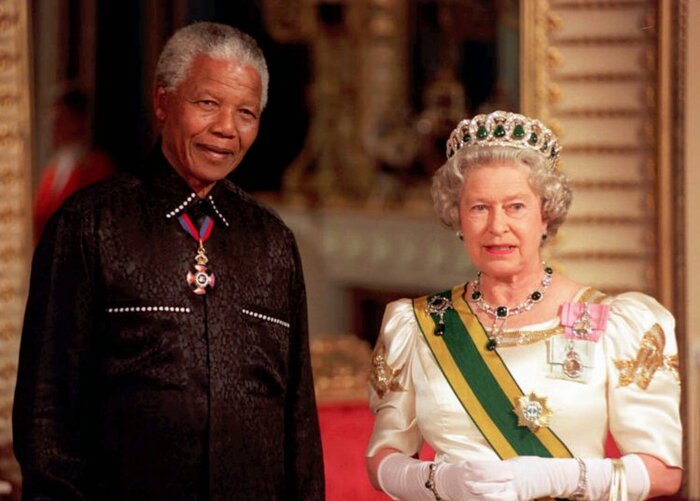
Collaborate
The political circles Nelson Mandela moved in were complex and fraught. There were many factions within South Africa and beyond who each had different ideologies. They had a common purpose of dismantling apartheid but had different means. Mandela had socialist inclinations but was not so dogmatic as his communist colleagues. He steadily worked on achieving an accord with the differing interests, which played to his favour after his release.
Moreover, he showed solidarity with his fellow inmates. Together they had strength, and this was how they steadily achieved improvements in their prison conditions. Prisoners of different races came together to create mutually beneficial arrangements. And finally, he even collaborated with the government that was keeping him in prison. Towards the end of his sentence, he was regularly called to meet with the increasingly liberal, reformist politicians who were gearing up to release him and relax the apartheid laws. While never compromising his principles, he began to work out the accords that created a peaceful transition of rule after his release.
While you or I might not be getting called from our home offices to chair COBRA meetings or hold power to account, we can still take a proactive collaborative approach. Reach out to your colleagues or peers to ask for advice or just to open a dialogue. If there ever was a time to seek out new ways of doing things that have always raised tension before, surely now is the time to do this in a calm and pragmatic way.
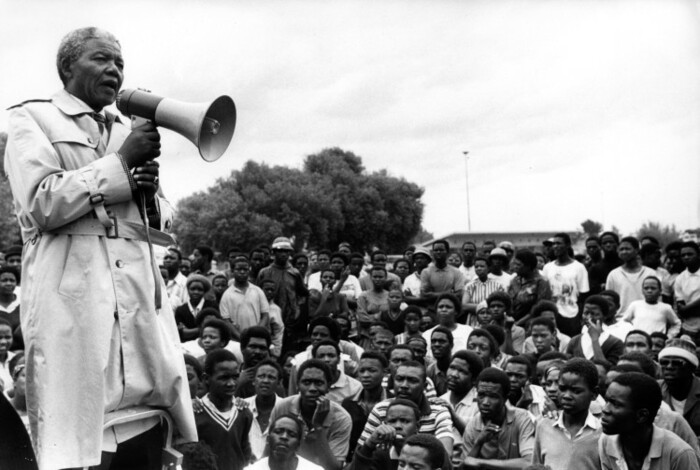
Execute
Nelson Mandela was primed to capitalise on his release. His first public appearance on that fateful day saw him confronted with huge crowds of supporters. Different political groups were hanging off his every word, fearful that he had given up his beliefs to secure release. But he was unmoved. He declared the vitality of their struggles while appealing to a broad collaborative effort.
‘Today, the majority of South Africans, black and white, recognize that apartheid has no future. It has to be ended by our decisive mass action’ he declared in a rapturously received speech. Shortly after this event, he was fully embroiled in the negotiations that led to a transfer of power from the former government of The Nationalist Party to the ANC, and eventually to democratic elections. In short, he was successful in transitioning from the great period of isolation to achieving his goals in the wider world, without a civil war.
It was a climactic moment, that laid the foundation for South Africa’s future. But it wasn’t easy. He later wrote ‘Frankly, when I saw that crowd, I must confess that I didn’t have the courage, the confidence to speak to them. It rather took me by surprise’. So if you feel apprehensive, you’re in good company. But there’s no reason that you can’t take the end of isolation as an opportunity to improve your own resilience and prospects, daunting as it may seem.
Leaving isolation stronger
With the help of planning, study, collaboration, and self-care we can all leave isolation stronger and resilient. That’s not to say things will be better than they were, or that there will be no repercussions. But career adaptability is all about responding fluidly to a changing environment and propelling yourself forward. By constantly seeking to develop, innovate, and collaborate you’ll find yourself able to come out of uncertain and challenging situations better than if you remain static.
Even before the CV19 pandemic, economic changes were threatening job security. If anything, this crisis has served as a wakeup call, and the isolation period we’re enduring can be an opportunity to learn how to become adaptable and resilient – and that is really the only form of long term security there is likely to be in the future.
Sign up here for more insights on career adaptability and skills for the future workplace.
